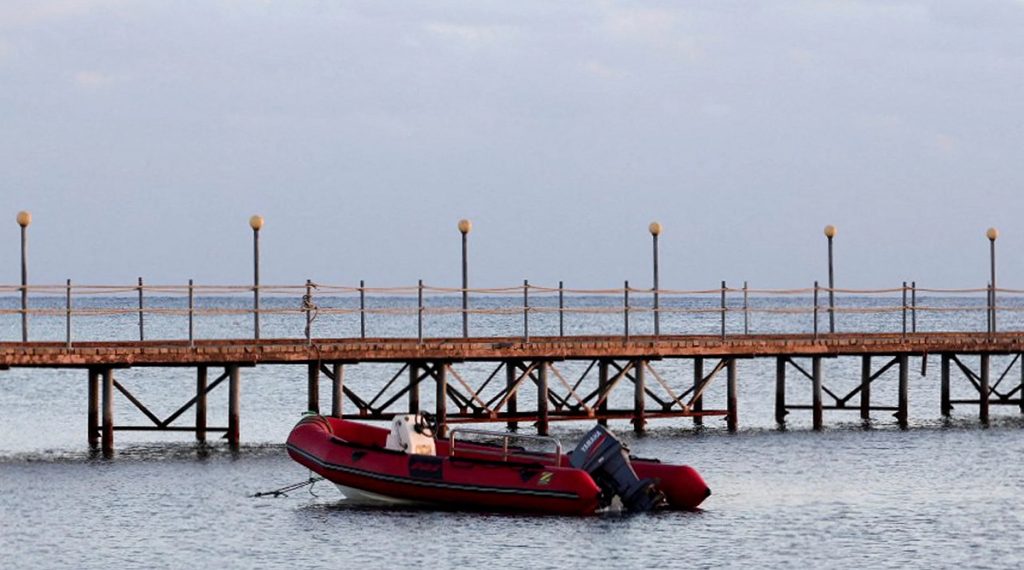On November 25, 2024, a tragic boating accident occurred off the coast of Marsa Alam, Egypt, a renowned diving destination in the Red Sea. The tourist boat Sea Story, which was on a multi-day diving expedition, capsized amid high waves and strong winds, resulting in multiple fatalities and missing persons. The incident underscores the inherent risks of maritime tourism in unpredictable weather conditions and highlights the importance of stringent safety measures.
Details of the Incident
The Sea Story was carrying a total of 44 individuals, including 31 tourists from various countries and 13 Egyptian crew members. Among the passengers were nationals from Spain, the United Kingdom, the United States, Germany, and Finland. Tragically, four people have been confirmed dead, and seven others, including two British nationals, are still missing. So far, 33 individuals have been rescued by authorities, with survivors receiving medical attention.
The boat capsized near the Wadi el-Gemal area, a site known for its rich marine biodiversity and coral reefs. Reports suggest that high waves and adverse weather conditions played a significant role in the accident. This area of the Red Sea, while popular for diving and snorkeling, can present challenges during periods of inclement weather, which were present at the time of the incident.
Rescue Efforts
The Egyptian Navy and other local authorities launched a swift response to the tragedy. Search and rescue teams, supported by military helicopters, scoured the area for survivors. Despite their efforts, several individuals remain unaccounted for, prompting continued operations. Survivors were located near the coast and transported to safety, with many expressing their shock and grief over the incident.
Investigations and Safety Concerns
Investigations are currently underway to determine the exact cause of the capsizing. While adverse weather conditions appear to be a primary factor, officials are also examining the boat’s structural integrity, adherence to safety regulations, and the adequacy of its response to weather warnings.
This tragedy serves as a stark reminder of the risks associated with marine tourism, particularly in areas prone to sudden weather changes. Local authorities had issued prior warnings about high winds and rough seas, raising questions about whether the boat’s operators adequately assessed the risks before setting out.
Tourism and the Red Sea
The Red Sea is a globally renowned tourist destination, celebrated for its crystal-clear waters, vibrant coral reefs, and abundant marine life. Marsa Alam, in particular, attracts thousands of divers and snorkeling enthusiasts each year. However, the growing popularity of these activities also brings increased safety challenges, as operators must balance demand with the imperative of passenger safety.
This incident has reignited conversations about the need for stricter enforcement of maritime safety regulations in Egypt. Ensuring that all vessels meet high safety standards, mandating comprehensive training for crew members, and improving the dissemination of weather-related information are vital steps to prevent such tragedies in the future.
Global Reactions and Condolences
The international community has expressed its condolences to the victims and their families. Many countries, including those whose nationals were aboard the boat, have reached out to the Egyptian government, offering assistance and support. The tragedy has also drawn attention to the shared responsibility of tourists, operators, and governments in prioritizing safety during recreational activities.
Conclusion
The capsizing of the Sea Story in the Red Sea is a heart-wrenching event that has claimed lives, left several missing, and shaken the tourism community. While the Red Sea remains a premier destination for diving and marine exploration, this incident underscores the critical importance of stringent safety measures, especially during challenging weather conditions. As rescue efforts continue and investigations proceed, this tragedy stands as a solemn reminder of the need for vigilance and responsibility in maritime tourism.
